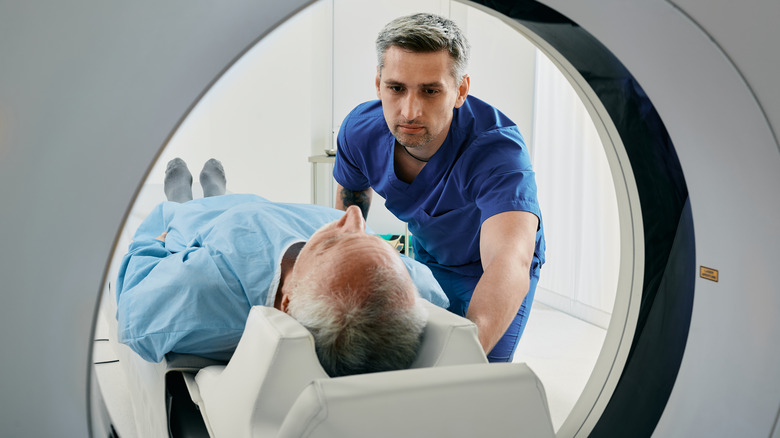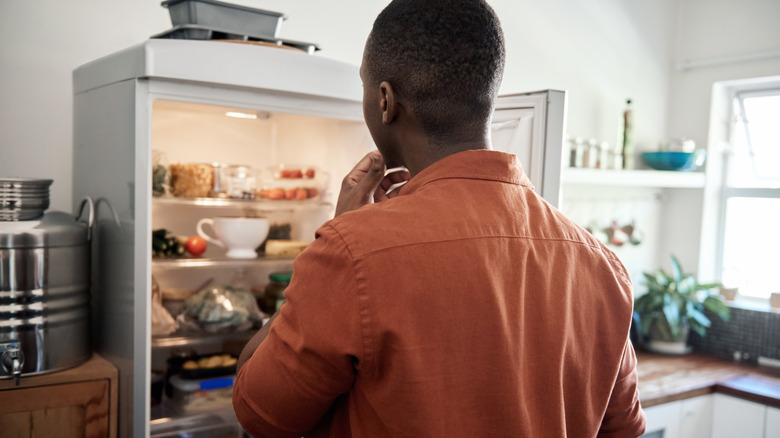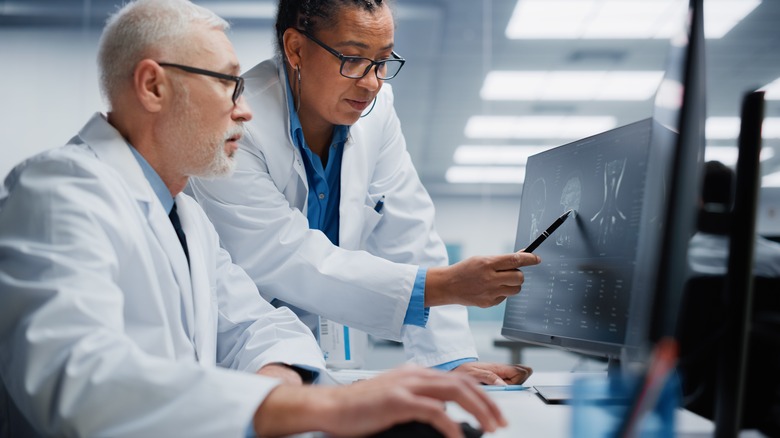Expert Tips On What To Do The Night Before Getting An MRI
While patients may not need to prepare for an MRI in the same way they might prepare for a colonoscopy or a surgical procedure, there are steps one can take in anticipation for their appointment. In an exclusive interview with Health Digest, Dr. Brett Mollard, a board-certified diagnostic radiologist practicing in the pacific northwest, told us what patients should be mindful of when prepping for an MRI.
"[One] of the more common things overlooked when going in for an MRI includes the noise — MRIs are very loud, even when wearing the headphones you should be provided," he says. Additionally, Dr. Mollard notes, "the MRI may require you to hold your breath multiple times while it's taking pictures, and some MRI exams may take upwards of an hour to get all of the pictures necessary for the radiologist to make a diagnosis." He also points out that certain items will not be permitted inside the exam room. "Lastly, absolutely no metal is allowed in the MRI room, as the MRI scanner itself is a very powerful magnet."
Three things to consider in advance
Dr. Mollard goes on to tell Health Digest exclusively that there are a few things patients may want to consider prior to their MRI appointment. Some of these will be physical items to bring, so it's important to make sure they are laid out and ready to go the night before. He suggests comfy clothes first and foremost. "Pick out an outfit that is comfortable and easy to change out of (so you can change into a gown for the exam) and make sure there is absolutely no metal that cannot be removed," Dr. Mollard states.
Second, have a playlist in mind ahead of time. "Think of music you would like to listen to — many imaging centers will let you choose a genre of music to listen to in order to help you relax while in the scanner," Dr. Mollard notes. Third, secure any anxiety-reducing prescription medications prior to the appointment. "If you suffer from claustrophobia, ask your provider for a one-time dose of a medication to help you relax during the MRI exam," he says. "Lastly, don't worry about getting the MRI. Most places have excellent MRI technologists that will help you through the MRI exam uneventfully," he offers encouragingly.
Should you fast before an MRI?
"Eating can affect an MRI in two specific settings," Dr. Mollard tells us. "The most general setting is when a patient will be receiving MRI contrast dye via an IV," he states. "While uncommon, 1-2% of patients receiving an MRI contrast agent will experience nausea, with an even smaller fraction also experiencing vomiting (less than 1%)."
Therefore, he explains that it's ultimately better to be safe rather than sorry when it comes to fasting before an MRI scan. "Out of an abundance of caution, we have patients fast typically 4 hours or so prior to their MRI to ensure the stomach is empty in case an episode of vomiting occurs," Dr. Mollard explains. "This is to avoid something called 'aspiration,' where the stomach contents go up the food pipe and can spill into the windpipe, get into the lungs, and potentially cause pneumonia." At the end of the day, patient safety is of the utmost priority, he says.
Eating may affect some types of MRI scans
"The second way eating can affect an MRI is when the patient is undergoing an MRI of their abdomen or pelvis, regardless of whether or not they will receive MRI contrast," Dr. Mollard tells us exclusively. "When a patient gets an MRI, some of the pictures take a few minutes to acquire. And when a patient eats a meal within a few hours of their scan, their brain tells their bowel to start working and push the food along."
He explains that the digestive process can interfere with the quality of the scan. "Unfortunately, when the bowel moves, it can cause artifacts that make it harder to assess certain organs in the abdomen and pelvis. Having patients fast for 4 hours prior to an MRI exam will limit motion-related artifacts and help get the best pictures possible." However, food does not interfere with all kinds of MRI scans, Dr. Mollard notes in closing. "Luckily, many exams are not affected by eating before an MRI. These include non-contrast MRIs of the head/brain, neck, spine, and extremities," he says.




